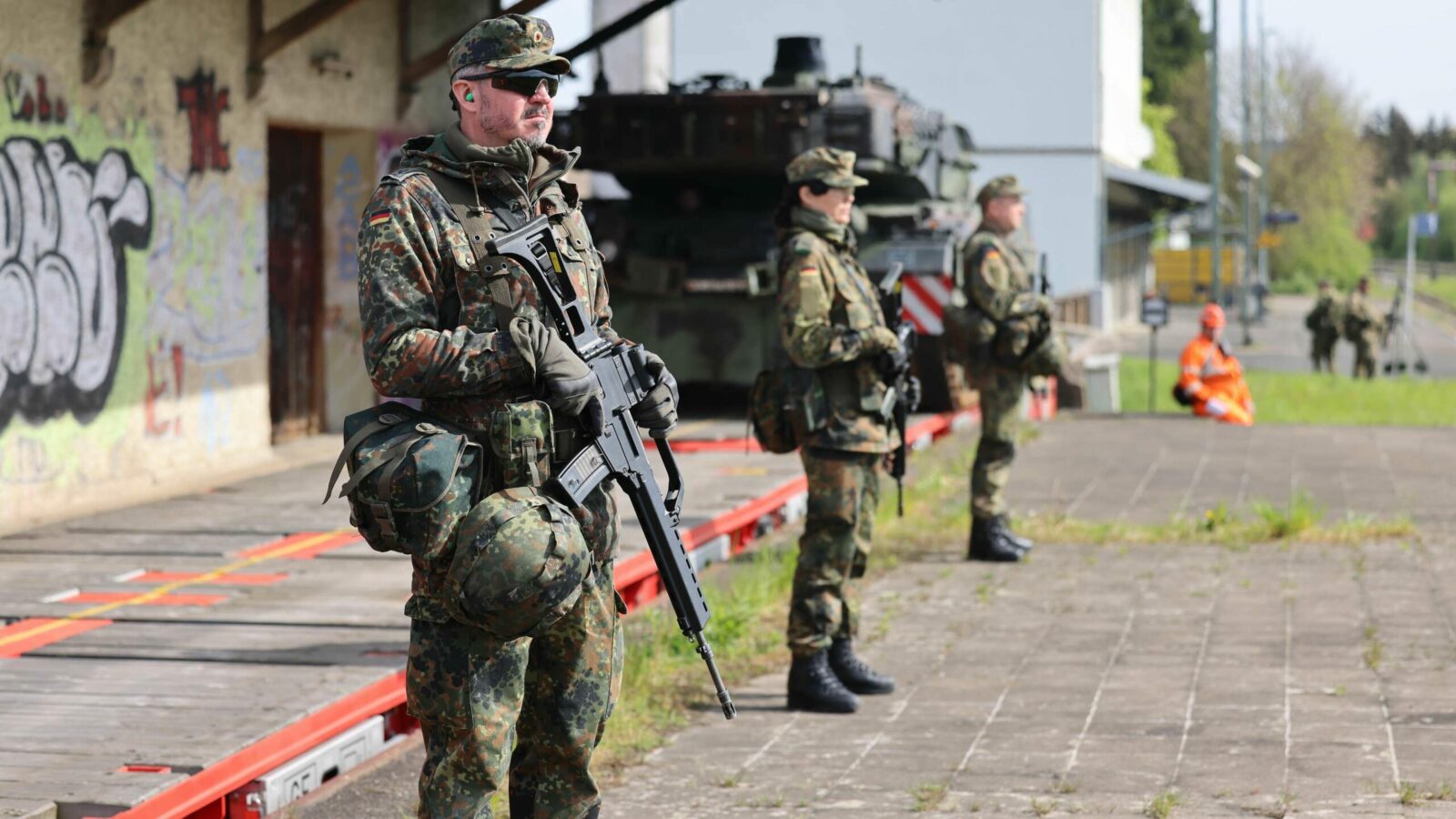From securing supply lines to fighting insurgencies, a wide range of tasks might be waiting for the 6000 soldiers.
From securing supply lines to fighting insurgencies, a wide range of tasks might be waiting for the 6000 soldiers.
By Yunus Soner, Berlin / Germany
Germany’s militarization of foreign policy, especially towards Russia has been discussed intensely. The German government has widened the military budget beyond the imaginable. The public opinion discusses day by day the reintroduction of obligatory military service, while scenarios of a Russian attack on the country are being widely discussed in great parts of media.
One step with this militarization has been the reorganization of the armed forces’ Homeland Security Division, which has logistical tasks in case of a war, but can also be set in motion before and even targeting civilians. This is the judgment of Philipp Tassev, journalist at the daily newspaper Junge Welt and an expert on military politics.
We spoke to Tassev in Berlin, Germany
Thank you for your time. What exactly is the Homeland Security Division?
These are infantry units composed of reservists and intended only for domestic deployment. Germany was not only a transit country for NATO during the first Cold War but is also a transit country today. The supply routes lead via German roads and German railways and through German airspace, and they simply have to be protected. And that’s what these homeland security units are designed for.
How big is this division?
In total, we’re talking about 6,000 men and women. Not a particularly large number, but it’s safe to assume that even more troops could be connected to these structures in the event of war.
And they have now been reorganized?
Homeland security units already existed during the Cold War. What’s new is that they are more closely aligned organizationally with the Bundeswehr, the Army. This allows for more efficient troop deployment. Their tasks include securing infrastructure and supply lines.
Do they have any additional tasks that can be expected?
Well, if you say they’re supposed to guard depots or barracks or even ports or airports, then it naturally follows that they’re supposed to keep those routes clear. If dockworkers refuse to load military equipment, or if anti-war protesters stage protests in front of barracks, then it’s conceivable that they’re training for precisely those scenarios.
Which ones? Can you provide an example? Operations against civilians, for example, against workers, against demonstrators. This is already being practiced together with the police.
How should one imagine this?
Well, police and homeland security units are practicing how to deal with workers. Of course, these exercises also involve soldiers and police officers, but the mere fact that their opponents in the exercise are dressed in overalls shows where things are headed.
Is it conceivable that the law will be bent even if there is no formal declaration of war against Russia?
One can imagine that they will use this homeland security division even beyond the outbreak of war at home, in order to restore peace and order, so to speak, as a prerequisite for the war in the far east.
There is already a precursor to war: the state of tension. In that context, it’s certainly conceivable. However, the relatively low troop strength of the currently planned 6,000 shows that this is certainly not the primary instrument for maintaining peace and order. So, that’s still the police, of course, and the intelligence services. But yes, it’s certainly conceivable that they could provide support to such missions. Especially if military intervention is needed.
Overall, in connection with this special asset of militarizing foreign policy: Do you observe rising tensions in society and both growing concerns about unrest on the part of the government and growing unease in society with this course?
So, the peace movement or in left-wing, anti-nationalist circles, there’s almost nothing happening currently. There’s still little movement. Most people are completely preoccupied with their everyday worries.
On the other side, there are certainly fears on the government side that unrest could arise. This isn’t said openly, but at events where people are more or less among themselves—experts, military personnel, and bureaucrats—these concerns are discussed. The German bourgeoisie, in particular, knows very well that it requires calm on the home front if it wants to wage war abroad. It has learned this from history.

















Leave a Reply